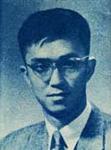| Xie Jin, a film director and prominent figure in modern Chinese cinema known for tackling the Cultural Revolution, has died at the age of 84, The Associated Press reported Sunday from Hong Kong.
The filmmaker was found dead early Saturday in his hotel room in the eastern Chinese city of Shangyu, where he was attending the 100th anniversary of his middle school, the official Xinhua news agency said. The cause of his death remained unclear, Xinhua said late Saturday.
With a six-decade career dating back to pre-Communist China, Xie was a predecessor of the so-called "Fifth Generation" of Chinese directors, famous in the West, which includes Zhang Yimou and Chen Kaige. He is best known for a trio of films about victims of the Cultural Revolution, when millions of people suspected of opposing the Communist government were persecuted.
Senior arts figures had opposed the release of the films, "The Legend of Tianyun Mountain" (1980), "The Herdsman" (1982) and "Hibiscus Town" (1986), with some critics accusing them of damaging the image of the Chinese Communist Party, Xie said in a 2002 interview published in the 2005 book "Speaking in Images: Interviews with Contemporary Chinese Filmmakers."
The director said he made the films because "the tragedies we experience impelled me to speak out."
"We cannot bear to think that similar things might happen to us again, and that's why we have to show what happened to the public. We have to let people know what we experienced," Xie said. Xie recalled in the 2002 interview that his parents committed suicide amid the political pressure of the period - his mother jumping off a building and his father overdosing on sleeping pills - and he had to collect their bodies himself.
Born in the eastern Chinese province of Zhejiang to a wealthy Shanghai banker in 1923, when China was still ruled by the Nationalists, Xie spent his childhood and teenage years in Hong Kong and Shanghai. He entered the Sichuan Jiangan National Theater Academy in 1941.
Xie's first breakthrough was the 1956 film "Woman Basketball Player No. 5" - a rare sports movie at a time when most Chinese films, in line with Communist ideology, were about peasants, workers and soldiers. (iht.com)
| 